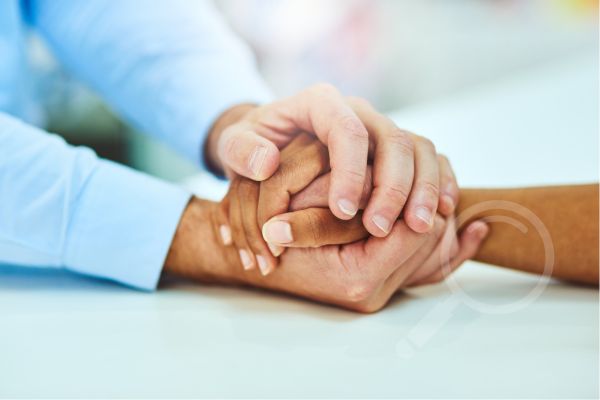For many years, treatment and support for alcohol addiction have mostly been centered on the individual struggling with addiction. However, alcoholism impacts not only the drinker but also significantly affects those around them, such as spouses, children, parents, friends, and coworkers. Often, these loved ones are left to handle their emotional struggles and challenges without much guidance.
In light of this support gap, Al-Anon Family Groups were established. Founded in 1951 by Lois Wilson, the wife of Alcoholics Anonymous co-founder Bill Wilson, Al-Anon recognizes that family members and friends of alcoholics endure their own pain and need their own recovery journey. This process can unfold independently of whether the alcoholic seeks help or achieves sobriety. Al-Anon aids loved ones by promoting the establishment of boundaries, assisting in emotional processing, and providing perspective in challenging circumstances.
What is Al-Anon? A Brief Overview
Al-Anon is a peer support group specifically designed for the friends and families of alcoholics. The structure, meeting format, and foundations of the organization are akin to those of Alcoholics Anonymous, although they operate independently of each other.
In contrast to intervention programs or family therapy that aim to help the alcoholic attain sobriety, Al-Anon’s main goal is to support family members in overcoming the repercussions of another’s drinking. This key distinction recognizes that loved ones also suffer from an issue that needs attention, regardless of the alcoholic’s drinking or recovery journey.
To join Al-Anon, one must have a friend or relative dealing with a drinking issue. Chapters exist worldwide and are typically open for walk-in attendance in most locations (though some meetings might be restricted to members — it’s advisable to check beforehand if you are attending for the first time).
How Al-Anon Aids Loved Ones of Alcoholics
Al-Anon’s approach is built on several fundamental principles that guide members toward healing and emotional health.
Focusing on what you can control — yourself
One of the most impactful concepts Al-Anon provides is called “The Three Cs”:
- You didn’t Cause it
- You can’t Control it
- You can’t Cure it
These principles help alleviate the guilt, anger, or anxiety that family members often feel while trying to manage the alcoholic’s behavior, enabling them to redirect their energy towards their own healing.
Encourages healthy boundaries
Another crucial idea is the necessity of setting boundaries as a means of safeguarding one’s emotional well-being while realistically managing relationships with addicted loved ones. Those involved with alcoholics frequently experience boundary violations. Al-Anon provides guidance to help establish and maintain these boundaries, facilitating compassionate detachment.
Addressing the emotional impacts
Caring for someone who struggles with drinking can lead to profound emotional scars. Al-Anon offers a supportive space to work through complex feelings like guilt, shame, frustration, and disappointment, helping members recognize that they are not accountable for another’s drinking. The organization also supplies tools to manage difficult emotions and set realistic expectations.
Breaking cycles of codependency and enabling
Families affected by alcoholism frequently develop unhealthy relationship dynamics, including codependency (where one derives self-worth from controlling or caring for others) and enabling (behaviors that unintentionally perpetuate drinking). Al-Anon aids members in recognizing these patterns and fostering healthier interactions with themselves and others.
Developing coping strategies
Al-Anon provides practical strategies for managing the unpredictability and chaos that often accompany living with an alcoholic. Members learn methods for handling stress, appropriately expressing emotions, and maintaining personal stability regardless of the alcoholic’s actions.
Is Al-Anon Support Enough?
While Al-Anon offers significant peer support, it’s highly advisable to complement participation with professional treatment. Licensed counselors and therapists bring specialized skills to address the complex emotional wounds, relationship dynamics, and mental health issues linked to living with alcoholism. Family therapy can also mend damaged relationships and restore communication.
This combined approach allows individuals to process their experiences in both clinical environments and within the nurturing Al-Anon community while benefiting from professional help to identify underlying issues, such as codependency in relationships.
For the millions affected by a loved one’s drinking habits, Al-Anon conveys a vital message: you are not alone, you aren’t responsible for someone else’s addiction, and you deserve support in your own journey toward recovery and wellness. Locate a local Al-Anon meeting near you today.


